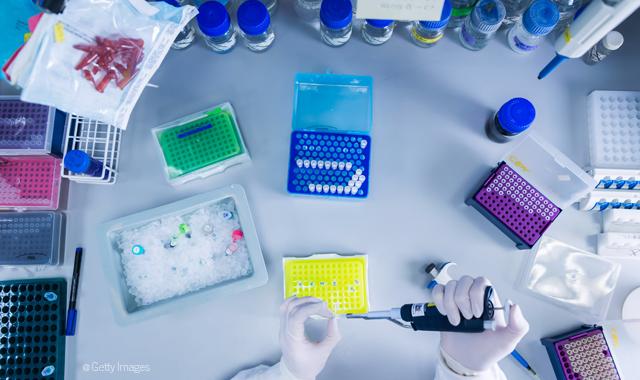Gum disease linked to highly deadly cancer
In recent months, gum disease has been linked to increasing number of major health problems - and researchers have now discovered another illness to add to the list.

In recent months, gum disease has been linked to increasing number of major health problems - and researchers have now discovered another illness to add to the list.
Researchers from the University of Louisville School of Dentistry examined the relationship between Porphyromonas gingivalis, a bacterial species that causes gum disease, and esophageal cancer. In a study of 130 patients, (100 with esophageal squamous cell carcinoma [ESCC] who had undergone esophagectomy surgery and 30 normal controls) researchers discovered that 61 percent of patients with ESCC had the bacteria. P. gingivalis only presented in 12 percent of noncancerous tissue adjacent to cancerous cells, and was entirely undetected in normal tissue.
Trending article: American Dental Association releases new guidelines on gum disease treatment
To come to these conclusions, the research team examined the presence of the bacteria’s cell DNA in esophageal tissue, and measured the level of an enzyme unique to P. gingivalis called lysine-gingipain. The cell DNA and lysine-gingipain enzymes were found to be significantly more prevalent in the cancerous tissue of ESCC patients. The researchers also discovered that the bacteria correlated with other factors, including metastasis and overall survival rate.
“Mounting evidence suggests a causal relationship between specific bacterial infections and the development of certain malignancies,” the study stated. “These findings demonstrate for the first time that P. gingivalis infects the epithelium of the esophagus of ESCC patients … and suggest P. gingivalis infection could be a biomarker for this disease. More importantly, these data, if confirmed, indicate that eradication of an oral pathogen could potentially contribute to a reduction in the overall ESCC burden.”
Esophageal cancer is difficult to diagnose, as by the time patients show symptoms -such as difficulty swallowing-most are in very advanced stages of the disease. According to one study, the overall five-year survival rate for esophageal cancer is only around 15%, making prognosis for the disease incredibly grim. If P. gingivalis is a contributing factor in the cancer, it is possible preventative measures could be taken.
“These findings provide the first direct evidence that P. gingivalis infection could be a novel risk factor for ESCC, and may also serve as a prognostic biomarker for this type of cancer,” said study author Huizhi Wang, M.D., Ph.D., assistant professor of oral immunology and infectious diseases at the UofL School of Dentistry. “These data, if confirmed, indicate that eradication of a common oral pathogen may contribute to a reduction in the significant number of people suffering with ESCC.”
Related research: Is there a link between gum disease and prostate disease?
Wang posited that there could be two explanations for the connection between ESCC and the oral bacteria: Either having P. gingivalis encourages esophageal cancer development, or the bacteria prefer ESCC cancerous cells.
“Should P. gingivalis prove to cause ESCC, the implications are enormous,” Wang said. “It would suggest that improving oral hygiene may reduce ESCC risk; screening for P. gingivalis in dental plaque may identify susceptible subjects; and using antibiotics or other antibacterial strategies may prevent ESCC progression.”
The full study, “Presence of Porphyromonas gingivalis in esophagus and its association with the clinicopathological characteristics and survival in patients with esophageal cancer,” was published the journal Infectious Agents and Cancer.
Oral Health Pavilion at HLTH 2024 Highlighted Links Between Dental and General Health
November 4th 2024At HLTH 2024, CareQuest, Colgate-Palmolive, Henry Schein, and PDS Health launched an Oral Health Pavilion to showcase how integrating oral and general health can improve patient outcomes and reduce costs.
Floss & Flip Flops Episode 22: National Dental Hygiene Month
October 1st 2023Join the Sanders Sisters and Dr Anna Kay Thompson as they learn about the burning questions the medical community is not asking about oral health. Learn about all of the ways they are celebrating the good work of dental hygienists in their quest for whole-body health.